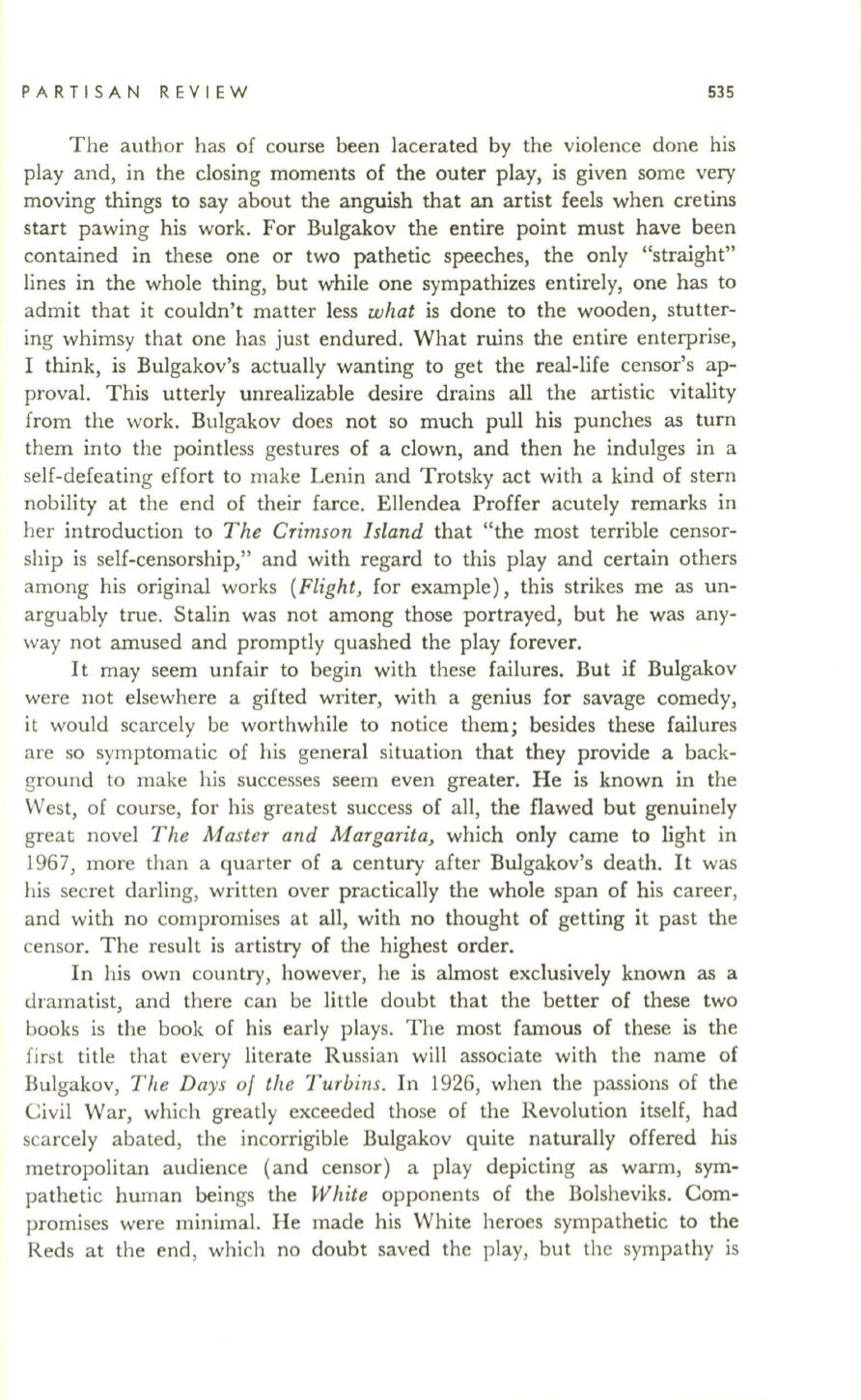
PARTISAN REVIEW
535
The author has of course been lacerated by the violence done his
play and, in the closing moments of the outer play, is given some very
moving things to say about the anguish that an artist feels when cretins
start pawing his work. For Bulgakov the entire point must have been
contained in these one or two pathetic speeches, the only "straight"
lines in the whole thing, but while one sympathizes entirely, one has to
admit that it couldn't matter less
what
is done to the wooden, stutter–
ing whimsy that one has just endured. What ruins the entire enterprise,
I think, is Bulgakov's actually wanting to get the real-life censor's ap–
proval. This utterly unrealizable desire drains all the artistic vitality
from the work. Bulgakov does not so much pull his punches as turn
them into the pointless gestures of a clown, and then he indulges in a
self-defeating effort to make Lenin and Trotsky act with a kind of stern
nobility at the end of their farce. Ellendea Proffer acutely remarks in
her introduction to
The Crimson Island
that "the most terrible censor–
ship is self-censorship," and with regard to this play and certain others
among his original works
(Flight,
for example), this strikes me as un–
arguably true. Stalin was not among those portrayed, but he was any–
way not amused and promptly quashed the play forever.
It may seem unfair to begin with these failures. But if Bulgakov
were not elsewhere a gifted writer, with a genius for savage comedy,
it would scarcely be worthwhile to notice them; besides these failures
are so symptomatic of his general situation that they provide a back–
ground to make his successes seem even greater. He is known in the
West, of course, for his greatest success of all, the flawed but genuinely
great novel
The Master and Margarita,
which only came to light in
1967, more than a quarter of a century after Bulgakov's death. It was
his secret darling, written over practically the whole span of his career,
and with no compromises at all, with no thought of getting it past the
censor. The result is artistry of the highest order.
In his own country, however, he is almost exclusively known as a
dramatist, and there can be little doubt that the better of these two
books is the book of his early plays. The most famous of these is the
first title that every literate Russian will associate with the name of
Bulgakov,
The Days of the Turbins.
In 1926, when the passions of the
Civil War, which greatly exceeded those of the Revolution itself, had
scarcely abated, the incorrigible Bulgakov quite naturally offered his
metropolitan audience (and censor) a play depicting as warm, sym–
pathetic human beings the
White
opponents of the Bolsheviks. Com–
promises were minimal. He made his White heroes sympathetic to the
Reds at the end, which no doubt saved the play, but the sympathy is


